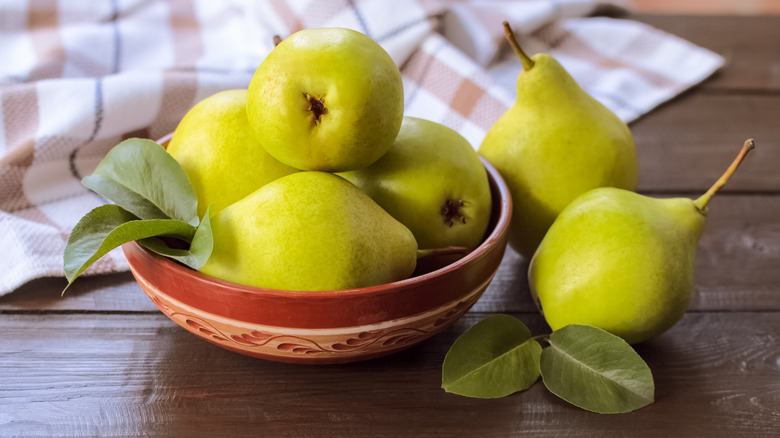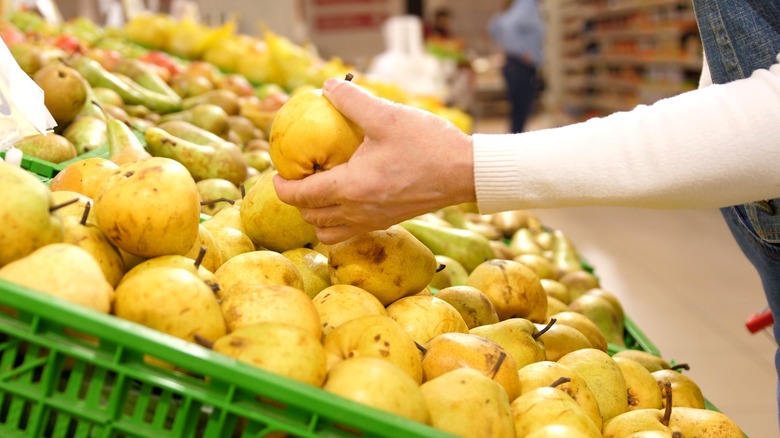How Much Sugar Is In A Pear?
What could be more refreshing than eating a juicy pear on a hot summer day? With its naturally sweet flavor, this fruit makes a healthy snack between meals or whenever you feel hungry. Plus, it has only about 100 calories and boasts large amounts of fiber, potassium, copper, vitamin C, and vitamin K (per MyFoodData). What's more, pears are rich in flavonoids and other antioxidants that may protect against diabetes and stroke, according to 2015 research published in Nutrition Today.
These delicious summer fruits contain both soluble and insoluble fiber, including lignins, a class of compounds with antioxidant activity. Soluble fiber forms a gel-like substance in the stomach and increases satiety. It also acts as a prebiotic, feeding the good bacteria in your gut, notes the Cleveland Clinic. Insoluble fiber, on the other hand, adds bulk to the stool and keeps you regular. Both types of fiber support digestive health and may lower your risk of developing heart disease, hemorrhoids, and type 2 diabetes.
Pears, however, contain about 70% fructose, plus sorbitol and glucose, reports Nutrition Today. When consumed in excess, fructose can lead to liver disease, inflammation, high blood pressure, insulin resistance, and other problems, explains a 2021 review featured in the International Journal of Molecular Sciences. On top of that, it may interfere with the production of leptin and ghrelin, two hormones that regulate appetite, leading to increased hunger and cravings.
Pears are surprisingly high in sugar
This juicy fruit tastes good for a reason: it has just as much sugar as a small ice cream or chocolate bar. A medium pear contains about 17.4 grams of sugar, reports MyFoodData. A dark chocolate bar, by comparison, provides 19.5 grams of sugar. The difference is that pears contain natural sugars and higher doses of certain nutrients, such as fiber and vitamin C.
Fructose, the primary sugar in pears, may cause bloating and digestive distress when consumed in large amounts. "So if you have a piece of fruit, wait a few hours before you have another if you are among those with these symptoms," gastroenterologist Dr. Phil Jaffe told WebMD. "If you have small amounts at a time, even if you have malabsorption problems, it's likely that you'll better tolerate fructose." Pears also contain sorbitol, a sugar alcohol that may cause gas and other digestive issues, says the International Foundation for Gastrointestinal Disorders.
From a nutritional perspective, sugar is sugar, whether it comes from fruit or candy. However, most fruits are rich in fiber, which slows sugar absorption into the bloodstream, notes Kansas State University. Even so, eating too much of anything — including pears — can lead to weight gain, high blood sugar, and stomach upset. To stay on the safe side, try not to exceed two or three daily servings of fruit, recommends dietician Andy Bellatti (via Insider).


